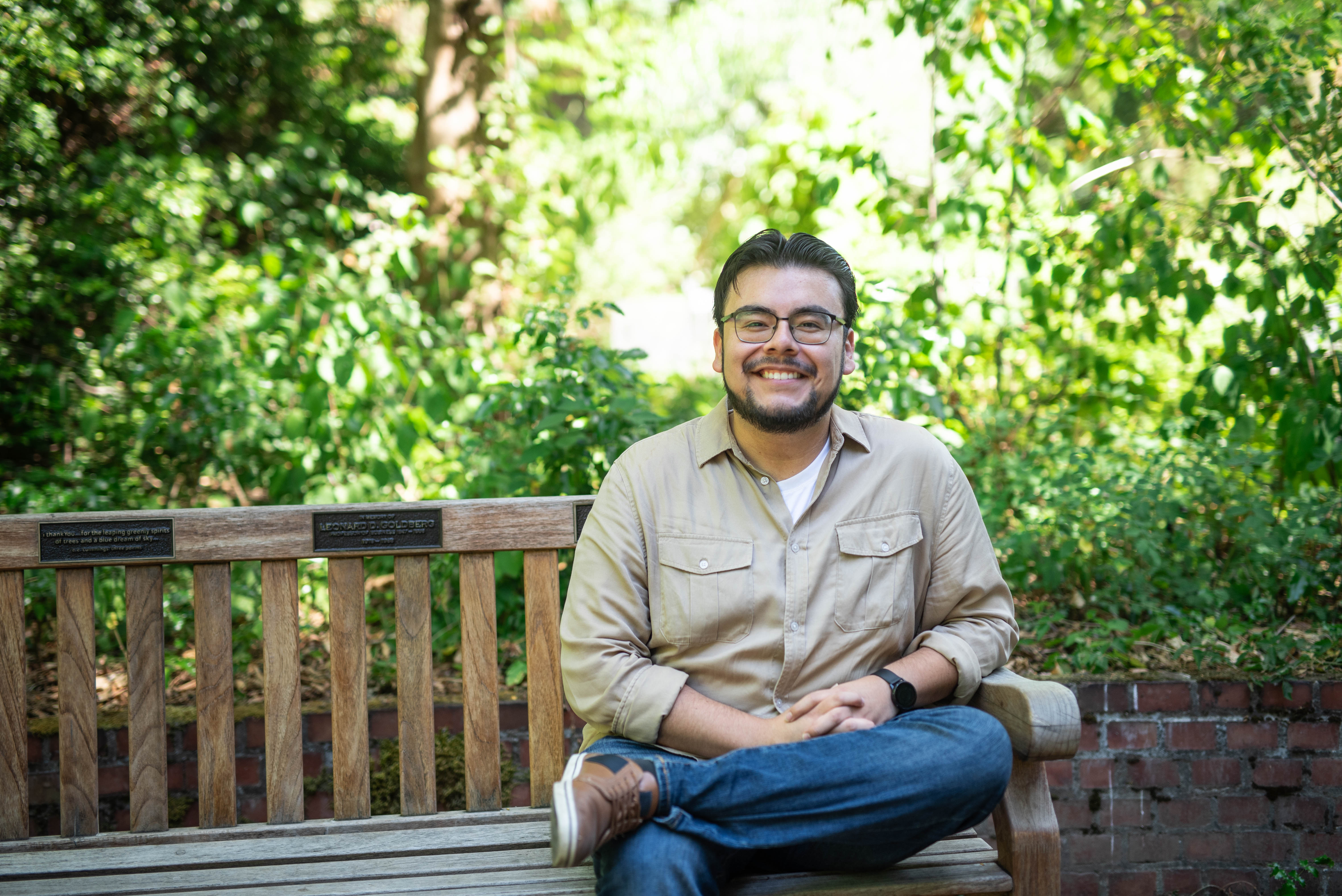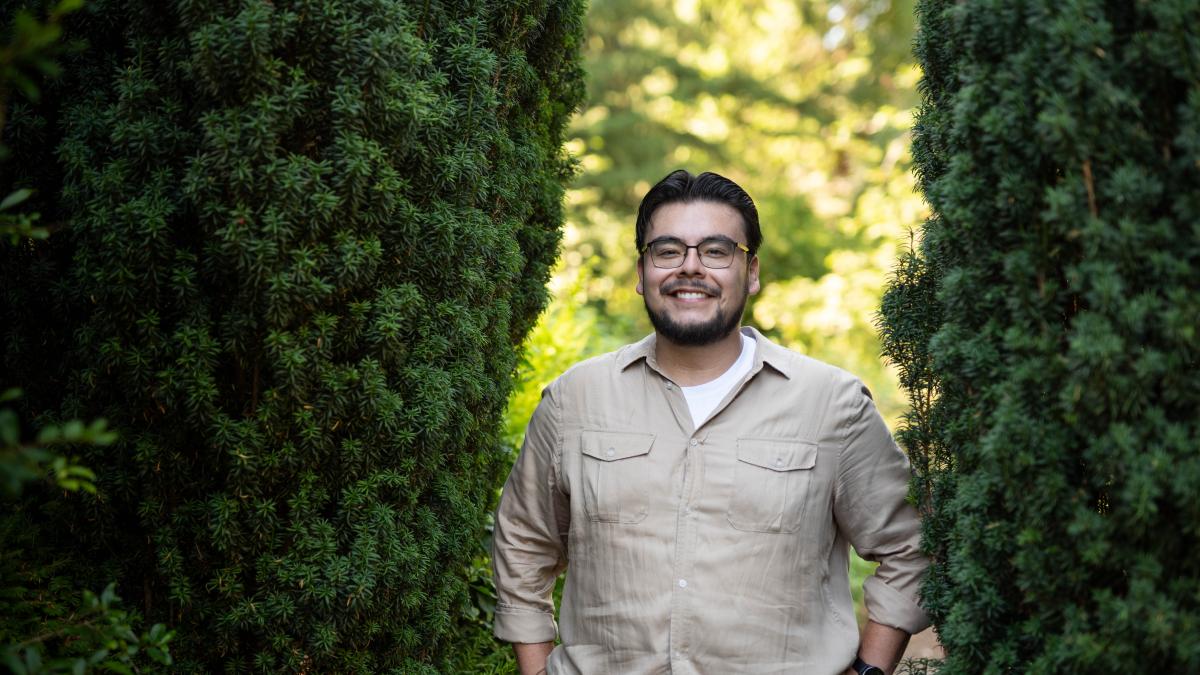Miguel Rojas-Flores
Applied MS, Environmental Health Sciences
Hometown
Merced, CA
Future plans
After graduation this fall, I plan to move back home to California’s Central Valley and pursue a teaching credential to serve the communities where I grew up.
“I am the proud son of Mexican immigrants who have worked in agriculture for most of their lives, and I am passionate about serving agricultural communities like the one I grew up in.”
- Miguel Rojas-Flores
Miguel Rojas-Flores is an MS student in Applied Environmental Health Sciences in the UW Department of Environmental & Occupational Health Sciences. He recently shared his experience as a student researcher working with our Pacific Northwest Agricultural Safety and Health Center (PNASH).
What is the focus of your master’s research project?
This summer, I am piloting a behavior change assessment for the Agricultural Leadership Program (ALP). This is a bilingual training program to enhance the leadership skills of farm supervisors and managers. The program is developed and hosted by the Washington State Department of Agriculture, the Washington Tree Fruit Association and Washington State University.
The goal is to create safer, healthier workplaces by training supervisors and managers to identify and use skills such as trust building, conflict resolution, communication and emotional intelligence.
I developed a scenario-based survey to measure how the responses of ALP participants changed over time, with questions about how much participants are learning, how they are applying what they learn and their recommendations for future ALP cohorts. I used focus groups to help participants elaborate on their survey responses. Surveys were translated into Spanish, and the focus groups were facilitated in Spanish.
This project serves as my culminating project for the MS Applied degree and required me to periodically travel to Wenatchee, WA, where ALP hosted its spring cohort. While developing the assessment, I have worked closely with my project supervisor, Assistant Teaching Professor Eddie Kasner, as well as PNASH Research Coordinator Maria Blancas; ALP founders Ofelio Borges and Jacqui Gordon Nuñez; and PNASH team members Pablo Palmández, Dennise Drury and Idanis Cruz.
.jpg)
What have you enjoyed most about your project?
My project expands on what workplace safety and health means.
The concept of Total Worker Health (TWH) is an exciting area that our department and PNASH are exploring alongside our regional TWH Center, and I get to be a part of it.
TWH is a rapidly evolving concept that views work as a social determinant of health and examines how work-related factors such as wages, workload and interactions with coworkers and supervisors contribute to the well-being of workers, their families and their communities.
The ALP is addressing important aspects of leadership in agriculture that have a significant impact on farmworkers, and the assessment I’m doing is helping show the results of the ALP.
One of my most memorable experiences has been getting to use a mixture of what I’ve learned from school and knowledge from my own lived experiences. I am the proud son of Mexican immigrants who have worked in agriculture for most of their lives, and I am passionate about serving agricultural communities like the one I grew up in.

What have you learned from your project so far?
This project has given me the opportunity to meet and work with so many farmworkers from Central and Eastern Washington and those who support farmworkers in different ways. I have been welcomed by a large community of people who share similar passions and interests in serving farmworker communities, and I am incredibly grateful for that.
Any tips for people applying to the MS Applied program in DEOHS?
Don’t be afraid to ask people where you can find opportunities. Talk to your professors, TAs, lab coordinators, advisors, classmates and friends. There are people who want to and will support you.
Also, don’t feel pressured to go straight into grad school. After getting my BS in Biology, I worked in several jobs, including as a naturalist and as part of the first cohort of the California Climate Action Corps. Your own knowledge from your lived experience is also really valuable and that can come from work experience, the experience that comes from your identity and more.
I care a lot about environmental justice, from air contamination to water quality, and there are so many related health issues, especially in farmworker communities. I saw that the department offered a lot of opportunities to engage with those topics. I’m grateful for the people who helped me connect with ALP and for the support I’ve received.




